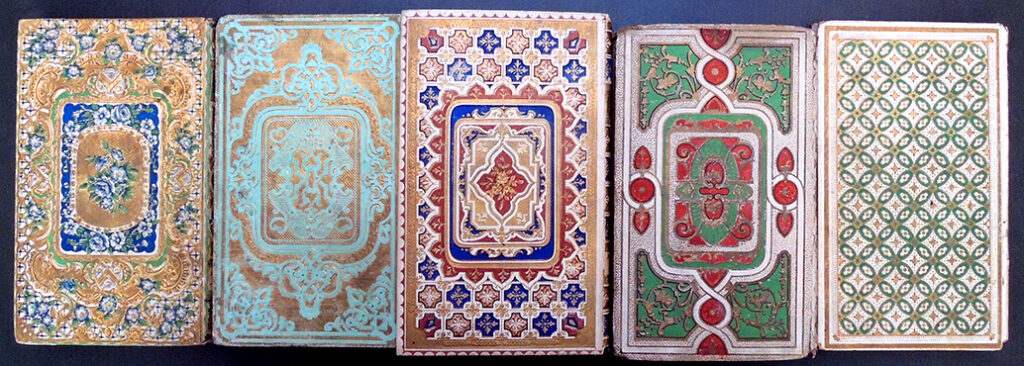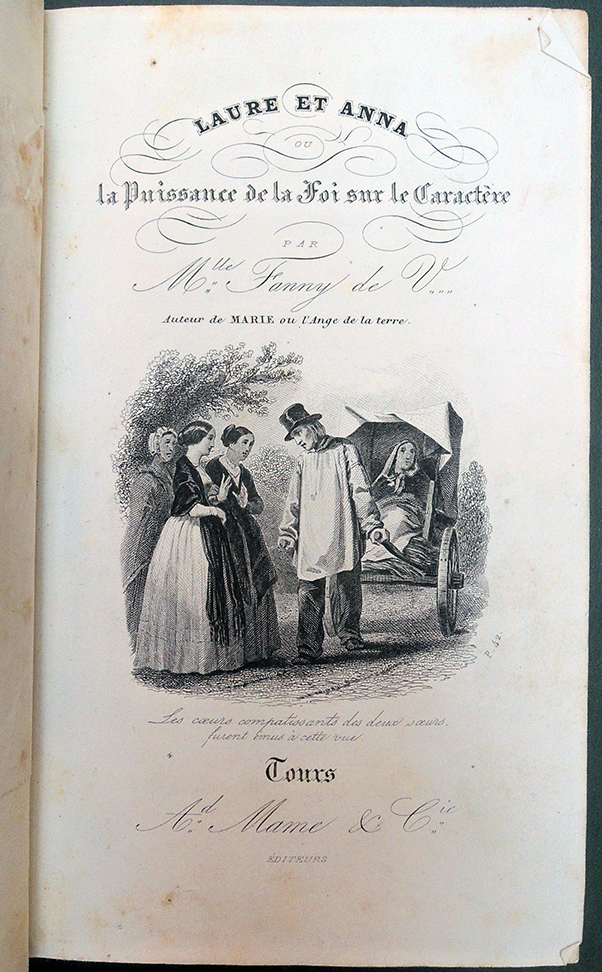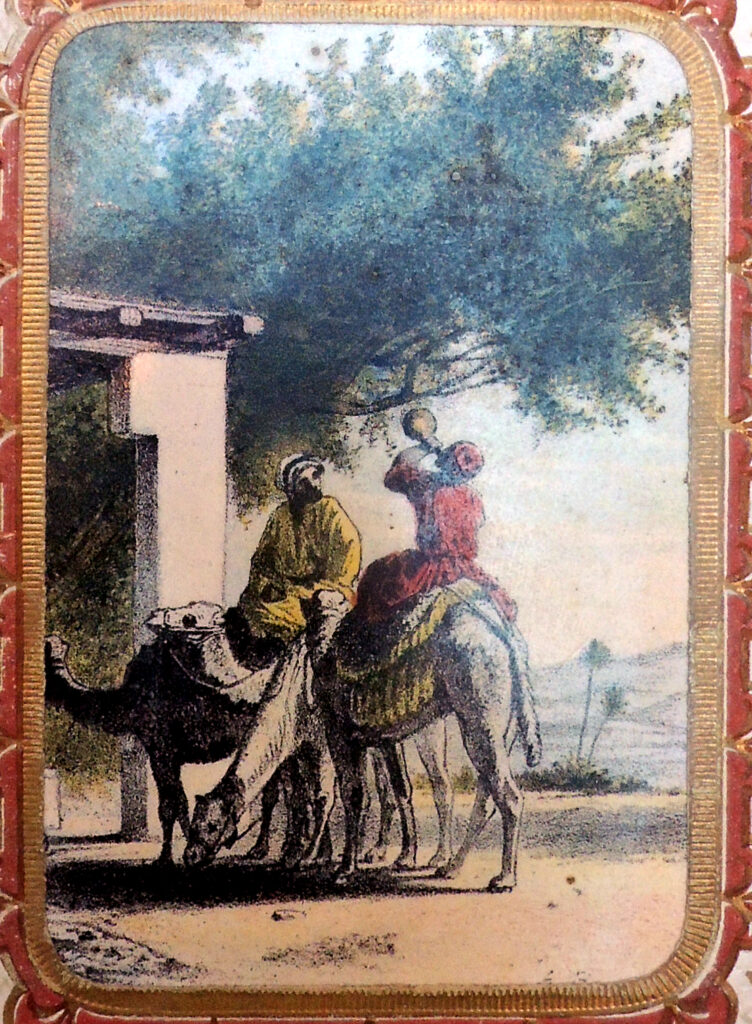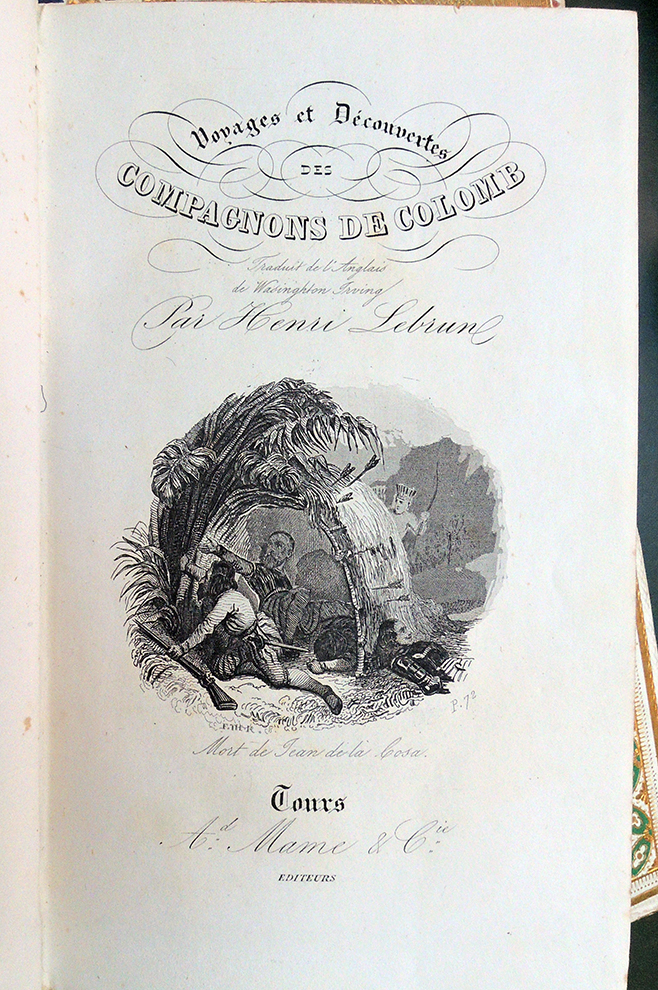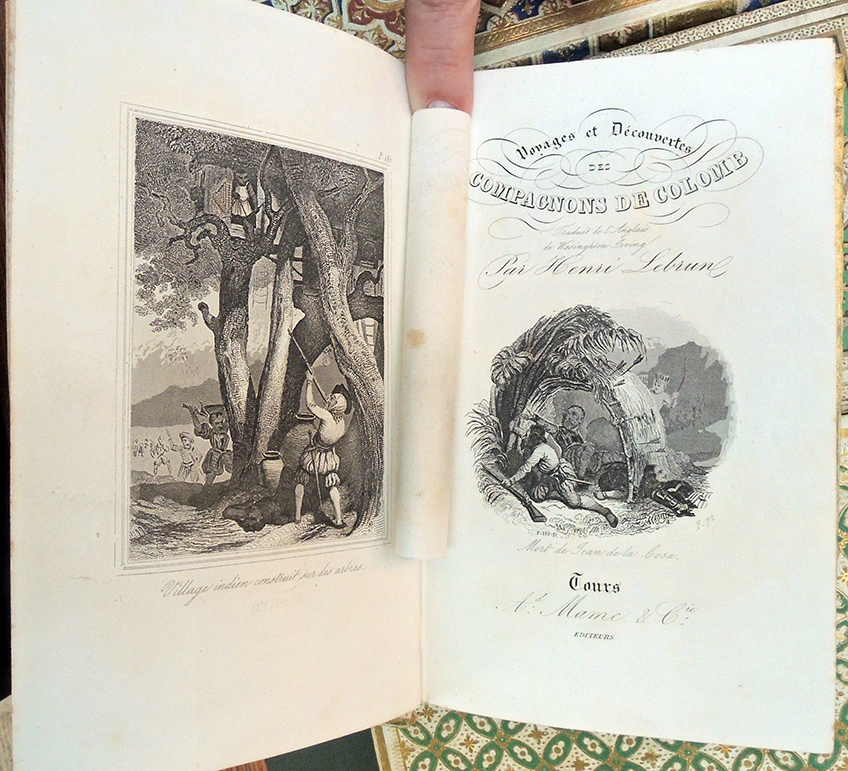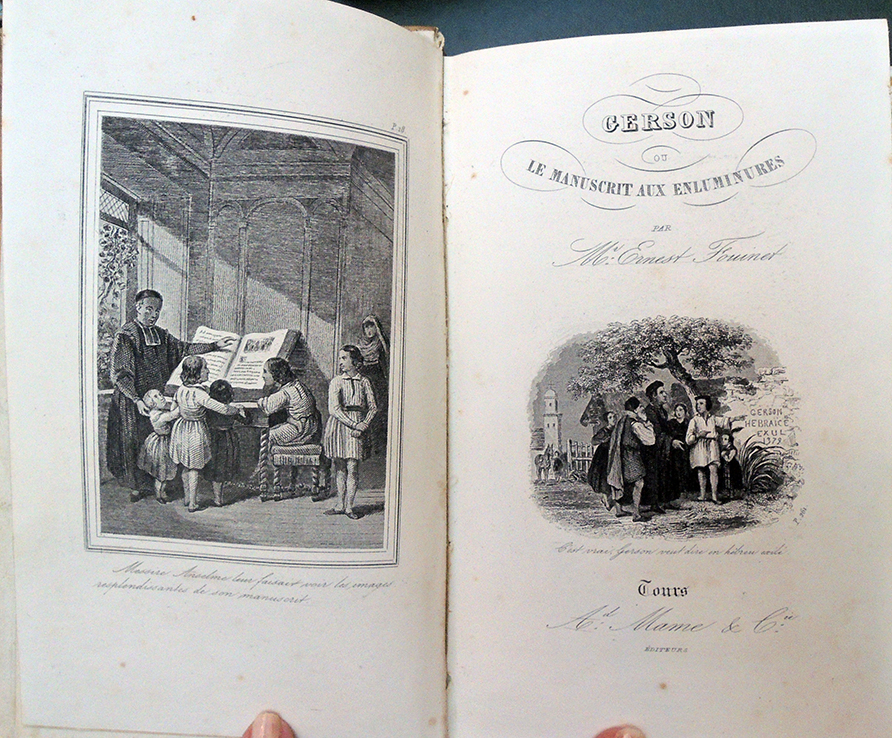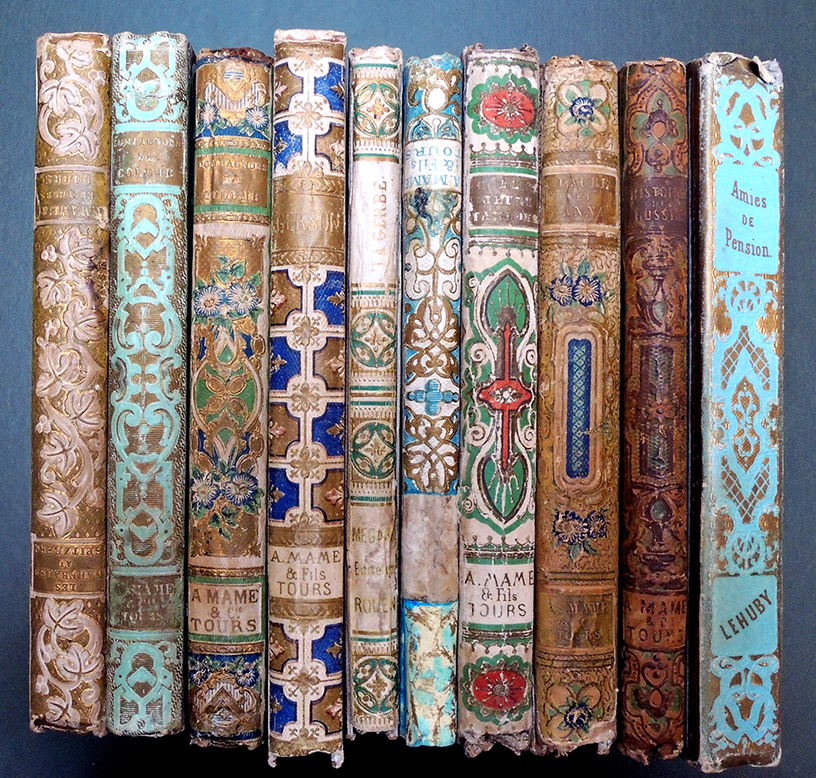
One of the sad aspects in the history of our library, like many other institutional collections, is that many books and magazines were rebound as soon as they are purchased, discarding often decorative and even unique bindings. Although we already hold many books from the publishing firm of Mame et Compagnie or Mame et fils, we have acquired an additional set of ten volumes with their 19th-century French decorative paper bindings intact. Each has the original publishers’ colored embossed paper-covered boards, many with hand-colored lithograph inlays, some with school prize labels.
“The book then undergoes the binding in three workshops, magnificent in their arrangement and comfort, and in which are employed 260 men and 250 women and children.” This is the entire description of the Mame binding workshop given in the 1878 history of the Mame and Sons publishing company, entitled Firm of Alfred Mame and Sons (1796-1893): printing–binding–bookselling: patronal institutions: participation, A. Mame’s endowments, homes for working people, superannuation, mutual aid societies. The report offers little information on production of their books but concentrates on the civic engagement of the company, which promoted the health and well-being of its workers through stock participation, company housing, and other benefits.
“…The situation of the establishment in the centre of a city excluded the idea of giving gratuitous lodgings to the working people: a [site], Peabody’s buildings style, has been constructed, where 62 families are lodged in habitations completely isolated the one from the other, each having its little garden and forming a quadrangle around a vast square planted with trees” …The Firm of Alfred Mame… https://archive.org/details/firmofalfredmame00alfr/page/4/mode/2up
The titles included in this group of decorative bindings
Louis Fridel, Les Naugrages au Spitzberg ou les Salutaires effets de la confiance en dieu. Neuvième édition. [Bibliothèque de la jeunesse chrétienne]. Tours: Mame, 1850.
Jean-Baptiste-Joseph Champagnac, Les Amies de Pension traduit de l’anglais. [Bibliothèque spéciale de la jeunesse]. Paris: P.C. LeHuby, [c. 1851].
Washington Irving, Voyages et découvertes des compagnons de Colomb… 4e édition. [Bibliothèque des écoles chrétiennes]. Tours: Mame, 1851.
Washington Irving, Voyages et découvertes des compagnons de Colomb… 7e édition. [Bibliothèque de la jeunesse chrétienne]. Tours: Mame, 1858.
Fanny, comtesse de Tilière, Laure et Anna ou la Puissance de la foi sur le caractère… sixième édition. [Bibliothèque de la jeunesse chrétienne]. Tours: Mame, 1859.
Jules Lacroix de Marlès, Histoire de Russie… nouvelle édition. [Bibliothèque des écoles chrétiennes].Tours: Mame, 1861.
Ernest Fouinet, Gerson ou le Manuscrit aux enluminures… dixième édition. [Bibliothèque de la jeunesse chrétienne]. Tours: Mame, 1866.
Anaïs, comtesse de Bassanville, La Gerbe. Rouen: Mégard et Compagnie, 1870.
Catherine-Thérèse Woillez, Le jeune Tambour… onzième édition. [Bibliothèque de la jeunesse chrétienne]. Tours, Mame et fils, 1872.
Contes arabes tirés des Mille et une nuits… Iere partie. [Bibliothèque de la jeunesse chrétienne]. Tours: Mame et fils, 1879.
The Catholic Encyclopedia published this biography of Alfred-Henry-Armand Mame (1811-1893) https://www.catholic.com/encyclopedia/alfred-henri-amand-mame
“Alfred conceived and carried out, for the first time, the idea of uniting in the same publishing house, a certain number of workshops, grouping all the industries connected with the making of books: printing, binding, selling, and forwarding. By analogy with the great ironworks of Le Creusot, the Mame firm has been called the literary “Creusot”.
Mame was also one of the principal owners of the paper-mills of La Haye-Descartes; and it could thus be said that a book, from the time when the rags are transformed into paper up to the moment when the final binding is put on, passed through a succession of workers, all of whom were connected with Mame. Daily, as early as 1865, this publishing house brought out from three to four thousand kilograms of books; it employed seven hundred workers within and from four hundred to five hundred outside.
Inspired by the social Catholic ideal, Alfred Mame established for his employees a pension fund for those over sixty, wholly maintained by the firm. He opened schools, which caused him to receive one of the ten thousand francs awards reserved for the “établissements modèles où régnaient au plus haut degré l’harmonie sociale et le bien-être des ouvriers”. In 1874 Mame organized a system by which his working-men shared in the profits of the firm.”


